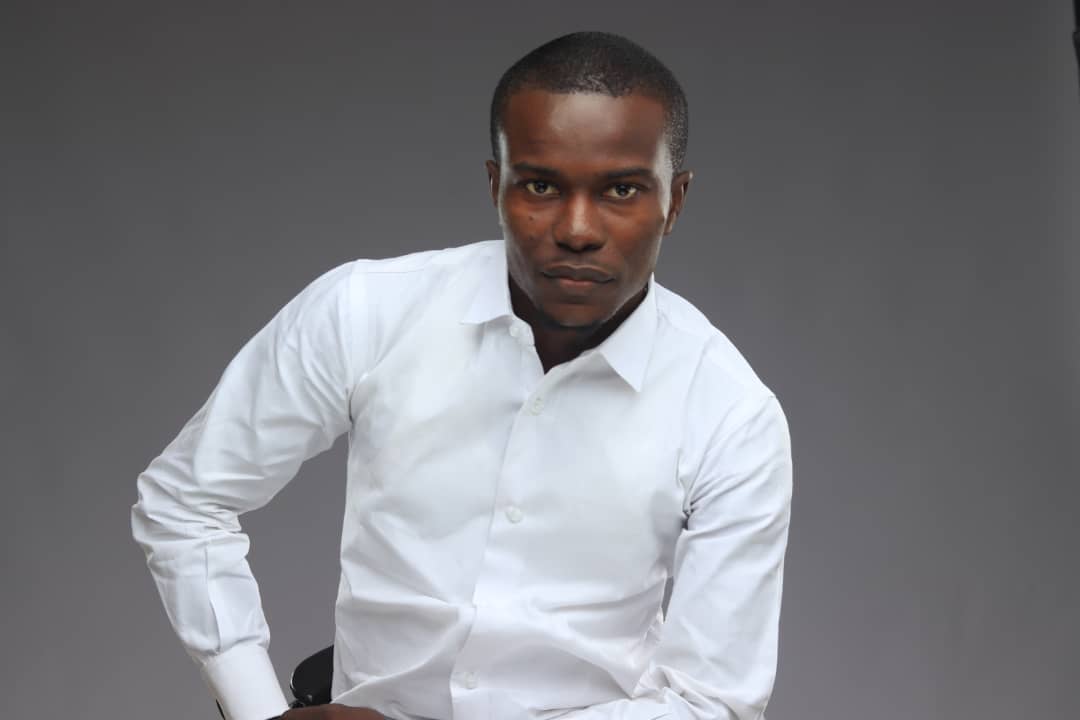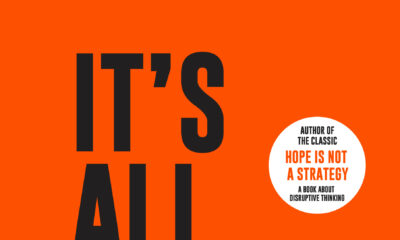Features
Mfonobong Inyang: On Bovi’s Brilliant Masterclass At Daystar’s Leadership Conference

Sam Adeyemi has always been my favourite from way back. His books on leadership contributed a great deal to shaping my worldview in those early days. Together with my bosom friend that year, we attended as many conferences and events at Daystar Christian Centre as the availability of transport fares would allow. Like many of us, I too was born into a religious but poverty-ridden community. I tell people this all the time but they struggle to believe me; it explains my social ambidexterity – I can effortlessly relate to the bougie as well as to the trenches. Fortunately, I quickly figured out that my mind is my superpower. Although, I didn’t know it then – I was effectively a sapiosexual. Hence my fascination and attraction to intelligence or intelligent people like Bovi.
Right from his Extended Family days, Bovi has had us in a chokehold throughout his stellar career. His quick-witted retorts, socially-conscious jokes and personal branding have all become all too familiar signatures. So when I saw his clips while speaking at The Excellence In Leadership Conference 2023 making rounds on social media, I was glad that such a cultural influencer was given a powerful platform to propagate his truth that can be very unconventional. Bovi was like a man on fire. I gleaned some very important odd pearls that I found most didactic and I thought to share.
Generational thinking/shift
Bovi starts his session by hilariously asking the audience to give a round of applause for his late mother, just like it was done for the speaker before him so that she won’t feel bad in eternity. He tells a story of how his mother believed that his local assembly was too “playful” for a church. She also wasn’t particularly impressed that the services were too short and there was no sign of a replica of the physical Cross Jesus died on. From Mama Bovi’s point of view, the church was supposed to be run in a certain pious way with long-winded sermons and the whole nine yards of religious accoutrements. From Bovi’s point of view, a playful church was exactly the kind of place he wanted to worship.
Notice that both of them were correct based on their respective conditioning, exposure and understanding. One person had a traditional definition of an idea while the other person had a transitional definition of the same idea. The dissonance between generational paradigms and worldviews is one of the challenges we face as a people today. One generation’s definition of good governance, wealth, success, love or even spirituality is different from the other. Yet we must constantly find that point of convergence, a nexus where the old meets the new. Great to know that Mama Bovi eventually gave her son the co-sign.
Perspectives
This point is closely related to the first. Perspective has to rank amongst my favourite words in the world. Bovi annotated this with an anecdote of his wife and her sister who usually rendered a wildly different account of the same event. He recalled that he would assume one of them was lying but he would later realise that people speak from their respective prisms; religion, trauma, partisanship, ethnicity, history and others. From these individual perspectives, groupthink is formed when a critical mass of people agree on certain issues and this leads to shared values and norms.
We must indeed find a way to break these barriers. Nothing stays the same. So since change is going to happen anyway, we might as well challenge the status quo. A lot of what we consider sacrosanct today are things that we have believed and accepted without interrogation. Not everything handed down to us by our forebears is positive or useful. We therefore need to review or completely overhaul certain practices.
Lack of information
Referencing a vintage Sam Adeyemi anecdote, Bovi talks about two completely different reactions to the same experience. In one village, after someone drowned in a river, they built a bridge over it the next day. In another village, after someone drowned in a river, they turned around and started worshipping the river as a god. The way we live, especially as a collective will significantly change if we have access to the right information. Most of our responses to life are from a place of ignorance. Why would anyone in their right thinking kill twin babies that year? Why also would anyone execute jungle justice against another human being in today’s world? Why would a public official steal money that is meant for the development of a society? The questions are endless.
Poverty is also another sub-causality. It’s not just the lack of money but a dearth of critical thinking. It makes me wonder whether we are naughty by nature or by nurture. How we process information is as important as the availability of the information itself. Poverty fuels undesirable behaviours in our society to a great extent. When you hear some government officials speak or examine their actions, you can see the absence of critical thinking or, to use Captain Blade’s favourite description, “low-grade minds.” The same is also true for us as citizens; the paucity of quality thinking can simply be inferred from the way we drive our vehicles. Yes, I know the roads are terrible. Even though, regardless, upon still – our road usage is still wild.
Culture of shame
This part went viral the most, I guess simply owing to its sheer relatability. Bovi struck a chord with a cultural underpinning that motivates our actions; the weaponization of differences. We age-shame, class-shame, slut-shame, broke-shame, body-shame etc. The idea is that we are somehow superior to certain people who don’t have what we have or belong to the same social groupings as we do. Our society punishes people for being vulnerable; a vindictive practice that causes us to hide our scars so that we don’t get profiled or stigmatised by others. It’s also the reason people get more degrees than a thermometer simply to appear sophisticated or acquire unnecessary prefixes to their names to appear important.
Bovi also explained that this culture of shame makes us think that local means inferior, hence our affinity for foreign products. A culture of shame is why we are competing amongst ourselves where we should be collaborating. Such behaviour reminds me of house slaves; that year some slaves used to think that they were better than their peers who were working on the plantations simply because they stayed indoors – they forget that winning the rat race doesn’t change any rat from being a rodent. We have a popular colloquial phrase that typifies this culture and philosophy, “I better pass my neighbour.”
Again, Paul of Tarsus, spits the unsullied truth in his second letter to the Corinthians: “We’re not, understand, putting ourselves in a league with those who boast that they’re our superiors. We wouldn’t dare do that. But in all this comparing and grading and competing, they quite miss the point.”
Audience-first approach
Bovi subtly deconstructs for us, a design-think that makes his events stand out. He would tell his team to ensure that there were enough giant LED screens strategically positioned so that even those who would sit at awkward angles would get their money’s worth. He later noticed that certain categories of tickets would sell out faster than others. That value-added perspective is genius. When customer experience is great, they take over the marketing. This was refreshing to know that certain people factor in the utilities that accrue to paying customers, instead of being obsessed over revenue.
He also shared the thinking behind certain character development in Visa On Arrival – a hugely popular series that mirrors the realities of dealing with personnel in public service. Instead of forcing characters down the throats of viewers, he chose to introduce new ones that made the plot more nuanced. That level of emotional intelligence in creating art should be applauded.
System-level changes
Bovi concluded his submissions by asserting that individually, we are relatively more malleable than we are as a collective. Some of the undesirable traits we are manifesting as people need to be attacked from the roots, institutionally. From the curriculum in our schools, the laws that are being passed in our legislature to even social etiquette. For example, we cannot indoctrinate young people into oppressing their mates by empowering them to punish their school mates then turn around and act surprised when they continue such abusive behaviour as adults.
I am heavy on knowledge-sharing, so it’s a joy to watch successful people like Bovi share their playbooks or snippets of their backstories to inspire others. Sometimes, it’s the lack of excellent execution that holds us back – not always my village people.























